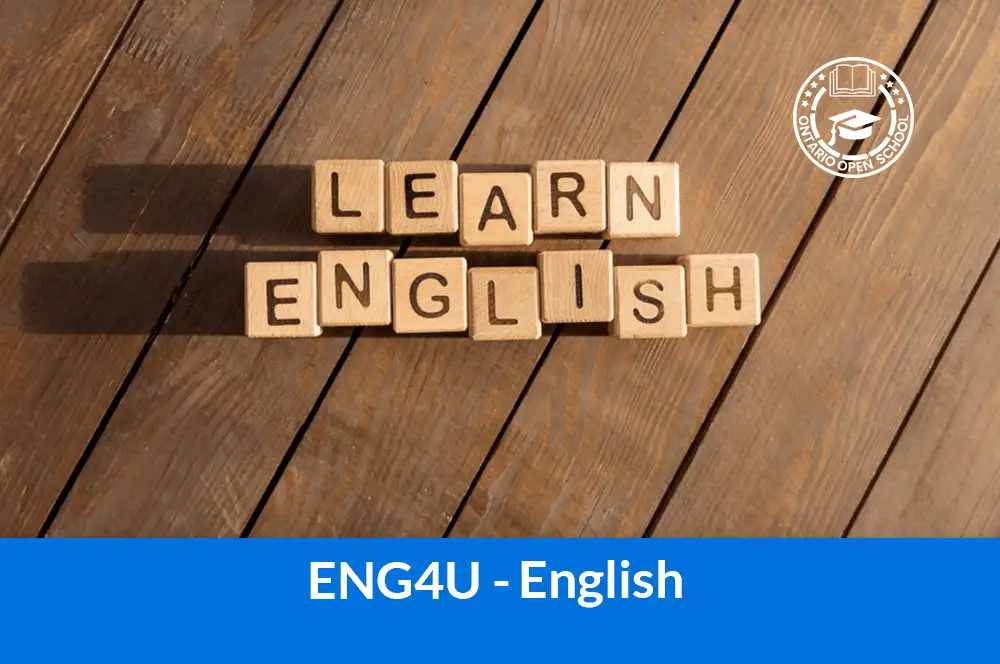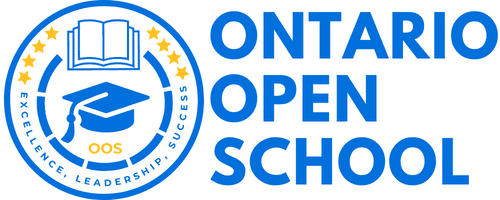- info@ontarioopenschool.com
- 647-494-4499
-
Unit 100 - 29 Gervais Drive, North York, ON.
M3C 1Y9
Copyright 2024 Ontario Open School Inc. All Rights Reserved.
This course emphasizes the consolidation of the literacy, communication, and critical and creative thinking skills necessary for success in academic and daily life. Students will analyze a range of challenging literary texts from various periods, countries, and cultures; interpret and evaluate informational and graphic texts; and create oral, written, and media texts in a variety of forms. An important focus will be on using academic language coherently and confidently, selecting the reading strategies best suited to particular texts and particular purposes for reading, and developing greater control in writing. The course is intended to prepare students for university, college, or the workplace.
Unit Order | Unit Name | Suggested Time |
|---|---|---|
| Unit 1 | Short Stories and Writing Development (Units covered A, B,C) During this section of the course, students will explore literary works in detail, examining various meanings of a text and responding to items such as language, characterization, and structures. Students also explore the different types of writing and their characteristics; expository, descriptive, narrative, persuasive, and creative. Students will create their own personal narrative. | 24 hours |
| Unit 2 | Novel Study: The Great Gatsby ((Units covered A, B, C, D) Students will study F. Scott Fitzgerald’s ‘The Great Gatsby’ which is a novel largely about America’s obsession with wealth and money. Students will become familiar with the 1920’s era also known as the “Roaring 20” s. This will provide students with a deeper insight of the characters of the novel. Students will analyse characters and their relation to the American Dream. The American Dream will be a major focus of this unit. | 27 hours |
| Unit 3 | Poetry (Units covered A, B, C, D) Students will study various types of poetic devices, as well as the oeuvre of various poets. Students will draw upon their knowledge and experience of literary analysis from previous units to examine themes, symbols, and motifs in poetry and learn to relate it to their personal experience and understanding. | 27 hours |
| Unit 4 | Media Studies (Units covered A, B, D) In the media studies unit, students will explore the effects of media on gender portrayal and the different types of techniques used for advertising. Identify some media forms and explain how the conventions and techniques associated with them are used to create meaning. | 24 hours |
| Final Evaluation 30% | Final Project Final Exam | 6 hours 2 hours |
| Total | 110 Hours |
A wide variety of instructional strategies are used to provide learning opportunities to accommodate a variety of learning styles, interests and ability levels. These strategies include, but are not limited to:
Purpose
The primary purpose of assessment is to improve student learning. Assessment relates directly to the expectations for the course.
A variety of assessments for and as learning are conducted on a regular basis to allow ample opportunities for students to improve and ultimately demonstrate their full range of learning and for the teacher to gather information to provide feedback. Assessment tasks relate to the success criteria set out in lesson plans. Success criteria allow students to see what quality looks like.
Evaluation is the process of judging the quality of student work in relation to the achievement chart categories and criteria and assigning a percentage grade to represent that quality. Evaluation is based on gathering evidence of student achievement through:
Assessment for Learning – we provide feedback and coaching. Assessment FOR Learning is the process of seeking and interpreting evidence for the use of learners and their teachers to decide where the learners are in their learning, where they need to go, and how best to go there.
Assessment as Learning – we help students monitor progress, set goals, reflect on their learning
Assessment AS Learning is the process of the explicit fostering of students’ capacity over time to be their own best assessors, but teachers need to start by presenting and modeling external, structured opportunities for students to assess themselves.
Assessment of Learning – we use assessments to provide evaluative statements about student achievement. Assessment OF Learning is the assessment that becomes public and results in statements of symbols
(marks/grades/levels of achievement) about how well students are learning. It often contributes to pivotal decisions that will affect students’ future.
ASSESSMENT TOOLS
| Units | Duration | Overall Expectations | AFL | AAL | AOL | K
25% |
A
25% |
C
25% |
T 25% |
||
|
70% |
A | 25 | A1-A3 | Worksheets
Discussion Forum Reading Responses
|
Peer Assessment
Self-Assessment |
Creating a Short Story | √ | √ | √ | √ | |
| B | 30 | B1-B4 | Worksheets
Class Discussion Video |
Questionnaire
Survey Discussion Forum Self-Assessment |
American Dream Project
Book Cover Project |
√ | √ | √ | √ | ||
| C | 30 | C1-C4 | Worksheet
Class Discussion |
Learning Log |
Poetry Café Assignment Quiz
|
√ | √ | √ | √ | ||
| D | 25 | D1-D4 | Worksheets
Videos
|
Reflective Discussion
Self-Assessment |
Analysis of an Ad | √ | √ | √ | √ | ||
| 30% | A1-D4 | and Final Exam 30% (Written Component) |
√ |
√ |
√ |
√
|
|||||
Resources
Grading
Weighting of categories
| Knowledge/Understanding | Thinking/Inquiry | Communication | Application |
| 25% | 25% | 25% | 25% |

Course Grade | Grade 12 |
|---|---|
Course Code | ENG4U |
Course Category | English |
Course Type | University Preparation |
Course Delivery | Online |
Course Duration | 110h |
Course Credit | 1.00 |
Copyright 2024 Ontario Open School Inc. All Rights Reserved.
